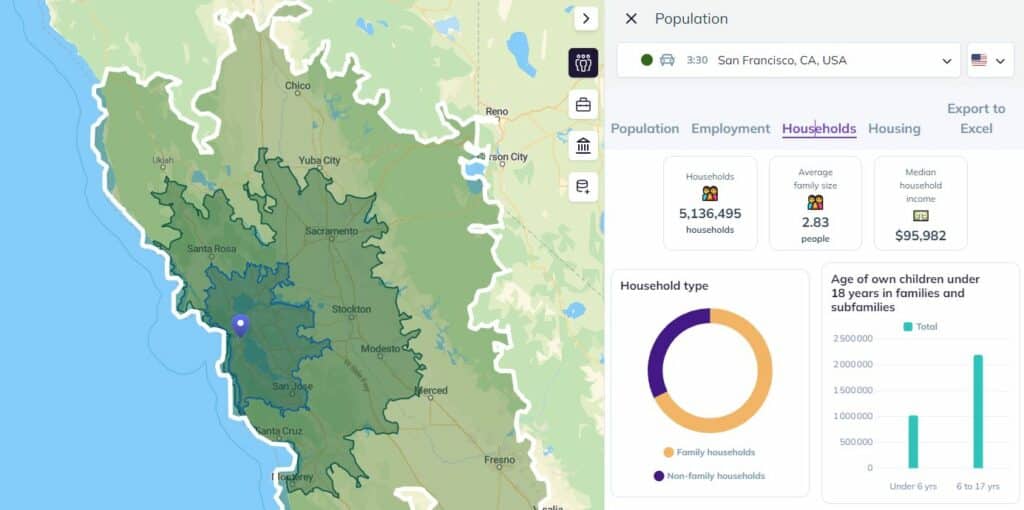What is a franchisor?
You’ve probably bought a product or used a service from a franchise before; those brands that have dozens or even hundreds of locations. Every industry — from fast food to home hardware and car dealerships — has its franchises. Some of the largest businesses and the most valuable brands in the world are franchises.
A franchisor is the entity that sells the rights to their brand name and provides access to resources for individual operators. So while McDonald’s is a franchise, the McDonald’s corporation is a franchisor: it owns the McDonald’s brand and sells the right to start a McDonald’s location.
What is the difference between a franchisor and franchisee?
Quite simply, the franchisor is the organization that sells the right to use a specific brand — and often offers access to other resources — and the franchisee is the entity that buys that right. Franchisees are usually independent business owners that pay a fee for the ability to operate under a renowned brand. They can make some of their own decisions when operating their franchise, but many aspects of their business are strictly controlled by the franchisor.
How to become a franchisor
One of the biggest parts of being a franchisor is having a brand that’s powerful enough to be worth investing in. After all, you’d be asking your franchisees to give up a significant amount of their income — depending on your specific franchise deal — just so they can operate under your brand. That means it has to carry some weight.
But if you’re ready to turn your brand into a franchise, here are some steps for doing that. Note that these may be different depending on the jurisdiction you’ll be operating in.
Protect your intellectual property
As a franchisor, your brand and your intellectual property are your greatest assets. That means you need to take the necessary steps to protect them. The exact methods to do so — including copyright protection and trademarks — will vary depending on where you’re running your business. Consult a lawyer to know what steps you’ll have to take.
Draft a franchise disclosure document
Also known as an FDD, a franchise disclosure document is a legal document that’s legally required from franchisors. It will detail the legal specifications of your franchise, including:
- The executive team’s business experience: This can help put potential franchisees at ease.
- Ongoing litigation: This can affect any franchise agreements you make.
- Franchise and other fees: A potential franchisee needs to know exactly how much they can expect to pay to work under your brand.
- Franchisee obligations: What responsibilities does a franchisee have when they enter in a partnership with you?
- Territory: Your FDD should outline the territories you’ll be operating it. Make sure you research potential territories, their demographics, and spatial factors using a location intelligence tool like Smappen.
- Trademarks: Trademarks are a big part of protecting your intellectual property, so they need to be included in this document.
Like many legal documents, the specificities can vary. Generally, though, this is the document that will outline every aspect of your franchise to a potential franchisee.
Create a franchise agreement
While the franchise disclosure agreement will give your franchisee all the information they need to make a decision, the franchise agreement is what they’ll actually sign before going into business with you. It’ll tell them what to expect and formalize the relationship between the two parties. It’s a legally-binding document that you’ll be able to refer to should you ever have any disputes in the future.
You’ll also need to create an operations manual and integrate it with your franchise agreement. This document will describe how locations in your franchise will operate and will help franchisees start on the right foot.
Register with your state (if necessary)
Depending on your jurisdiction, you may have to register or file your FDD with your state before your franchise can start operating. There may also be fees involved with launching your franchise. Of course, the best way to know exactly what your responsibilities are as a franchisor is to get in touch with a franchise lawyer.
Build out your franchise
Now that you’ve done all the paperwork and handled all your legal responsibilities, it’s time to get to business! At this point, your franchise is fully operational, and all that’s left to do is to find some franchisees. If you don’t already have leads, here are a few ways you can find them:
- Hire consultants: They say there’s a consultant for everything, and franchising is no exception. With the right consultant, you can get a steady stream of franchisees that have already been vetted.
- Use your network: If your professional network doesn’t already know you’ve started a franchise, make sure to tell them! You never know who has a potential contact that’s interested in getting into your line of work.
- Go to trade shows: Expand your network! Trade shows are a great place to meet like-minded individuals and build new connections.
- Start marketing: Just like anything else, a franchise is something you need to sell. Everything from social advertising to email newsletters can help you bring in leads and grow your franchise.
3 advantages of being a franchisor
So why even start a franchise in the first place? Why not just focus on building your own business? While it’s true that not every organization should franchise, there are some clear benefits to doing so.
You can meet increasing demand
If you’re even thinking about starting your own franchise, it’s probably because you have more demand than you know what to do with. While you could potentially grow your own business to meet that demand, franchising is a great way to exponentially increase the number of customers you can serve without having to massively scale your own operations.
You’ll unlock a new revenue stream
Starting a franchise doesn’t mean your original business ceases to exist. In fact, it can make your business more profitable. Franchisees typically pay a hefty fee just to start a franchise and a portion of their revenue goes back to the franchisor. That means you get access to new revenue without starting a new location yourself.
You can absorb potential competition
Think about it this way. If you don’t have a franchise, there’s a big chance you’ll see some of the most talented operators launch their own business or join a rival. By creating a franchise, you can potentially find them first, bring them under your brand, and benefit from their hard work.
9 examples of franchisors
There are many, many franchises across a ton of industries, but here are some of the most well-known franchisors.
Ready to start a franchise?
Becoming a franchisor can be a great way to unlock a new revenue stream for your business without having to worry about increasing your expenses. While it does involve paperwork, business planning, and some legal help, the upside is more than worth it.
Need a tool to figure out the best market for your franchise? Try Smappen, a free location intelligence tool trusted by businesses like Amazon, Baskin Robbins, and Best Buy.


